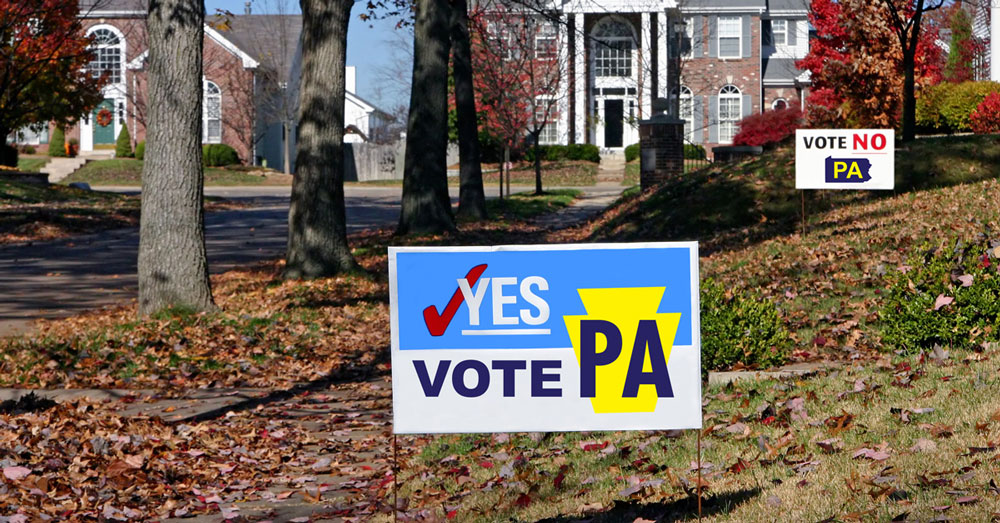Political campaign signage and yard signs has always been a point of significant controversy in PA, which has only intensified in the recent years. Because our democracy depends upon the free exchange of ideas, the First Amendment forbids laws “abridging the freedom of speech.” The Supreme Court has long interpreted that the Amendment has a very broad set of protections to political speech and, in particular, to political campaign signage. However, some Pennsylvania homeowners may find that their freedom to express support for a particular candidate or party may be undone by their very own HOA or community association.
In general, Pennsylvania’s legal approach is that political posters and signs posted within reasonable time of the elections are a form of protected speech. As a result, a zoning law or other act of the government that imposes a ban on temporary political signs within residential areas will be considered unconstitutional and invalid. While situations involving size restrictions and permit requirements in zoning ordinances that concern political signs are not as clear cut, they are subjected to rigorous scrutiny by the courts and such actions by the government will often be found invalid as well.
Freedom of speech via political signs is not unlimited in Pennsylvania. Specifically, Pennsylvania residents who live in community associations might have their ability to display political signs heavily restricted or even prohibited by the association’s governing documents. This seemingly unconstitutional approach results from the fact that both the United States Constitution and the Pennsylvania Constitution protect people against interference with speech only where such interference is carried out by the government. Community associations, however, are not considered to be government actors in Pennsylvania. This distinction is well explained in Midlake on Big Boulder Lake, Condo. Ass'n v. Cappuccio, 449 Pa. Super. 124 (1996), where the Pennsylvania Superior Court upheld the association’s right to restrict its unit owners from displaying signs because the community association was a private organization, and as such, could not violate unit owners’ First Amendment rights. The Court further explained its decision by recognizing the significance of an individual’s voluntary decision to purchase property within a community association. Specifically, the Court held that
The Courts of this Commonwealth have vigorously defended the rights which are guaranteed to our citizens by both the federal and our Commonwealth’s constitutions. One of the fundamental precepts which we recognize, however, is the individual’s freedom to contractually restrict, or even give up, those rights. [The unit owners] … contractually agreed to abide by the provisions in the Declaration at the time of purchase, thereby relinquishing their freedom of speech concerns regarding placing signs on this property.
In summary, as long as an association is enforcing its governing documents uniformly across all units and owners, a restriction on the displaying of signs, including political campaign signs, will most likely be upheld in Pennsylvania, despite the general protections afforded by the United States Constitution and the Pennsylvania Constitution.
